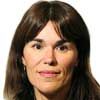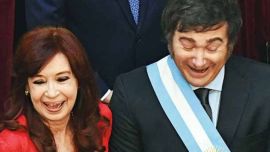Something is not right with the Macri government's economic plan. At least if you look at Argentina's country risk, which spiked at the end of last week to reached its highest level in the last three months.
It closed at 762 points against 746 the previous day, numbers which put Argentina close to peak rates it reached four years ago when it had not yet settled with the vulture funds. Country risk was 470 points when the Macri government announced a stand-by loan deal with the International Monetary Fund (IMF) in June.
Analysts attribute the rise to "a more complicated global context" which is increasing risk aversion and prompting investors to turn their backs on emerging markets. This phenomenon "always hits" Argentina, they say.
Given the IMF deal runs past 2019, there is uncertainty about next year's general and presidential elections, which centres on the Macri administration's re-election chances and future payment of financial commitments post 2020.
In this scenario, investment strategists have increased their dollar portfolios over the last three weeks. For a conservative investment profile, they recommend a portfolio of between 75 percent and 100 percent in dollars, prioritising short-term bonds.
REASONS
"The world has become risk averse" because a "slowdown in economic growth in the United States is forecast as a result of the intensification in trade rhetoric between the United States and China, which generates volatility. There is also Europe's geopolitical uncertainty over the future of Brexit as well as the situation in Italy and France", said Nicolás Bentel from Puente.
"We are suggesting a short-term dollarised defensive fixed-income strategy in investment portfolios", he added.
"Electoral uncertainty has beaten the [optimism surrounding the] IMF deal; the market is worried about the Kirchners returning to power", said Ramiro Marra of Bull Market Brokers, referring to the prospects of former president Cristina Fernández de Kirchner scoring big wins in next year's elections.
"There is no other reason why the country risk has gone from 600 to 750 points", he said.
Pablo Castagna from Portfolio Personal Inversiones agreed that "local uncertainty is what weighs most, it is the political ingredient of the elections".
Argentina's country risk "is much higher compared to other emerging countries in the region like Brazil, Peru, Colombia; there should be a difference of 50 or 100 points, but today the gap with them is 300 and 500 points", he added.
For Diego Demarchi of Balan Capital Z this concern is reflected in the fact that "a bond with expiration in 2019 yields below four percent and a bond expiring in 2020 is above eight percent".
In this sense, Castagna warned that he does not see "any factor that suggests that the country risk will fall quickly, unless it is the election results or there are indications in the polls that make the market think that populism (the Kirchner movement) will not not return".
"Country risk will continue at these rates and while we don't know who the candidates are the economy keeps stumbling", he added.
"Argentina's debt profile is most compromised by the rise in the exchange rate and the fall in activity, the debt-GDP ratio is around 80 percent," said Nery Persichini of GMA Capital.
"It is important that Argentina start generating dollars so that investors see, beyond the issue of the election, that it is improving its ability to pay, that there are improvements on a macro level which signal that by 2020 it can return to international markets", she added.
DOLLARISATION
Marra explained that "in the last three weeks we started recommending increased dollarisation of portfolios... because electoral uncertainty is growing; the market began suspecting the possibility of a return of the Kirchners; bonds slumped, at very tempting prices, and we believe it is a time to buy dollar securities."
"A month ago we recommended 50 percent in dollars and 50 in pesos to take advantage of the high interest rate, but now we suggest 80 percent in dollars, and 20 percent in pesos".
Citing electoral uncertainty and country risk, Demarchi suggested "a portfolio 75 percent in dollars and 25 percent in pesos.
"With the exchange rate even closer to the lower band there is an opportunity to dollarise portfolios", he explained.
For his part, Castagna said that "three months ago the recommendation was 10 percent or 20 percent of the portfolio in pesos with a controlled exchange rate and high interest rates, but already in December for a conservative profile and facing an election year, I suggest 10 percent in dollars".
The Buenos Aires Federation of Commerce and Industry yesterday called for an "emergency mechanism" for the sector, citing "tax pressure, lack of financing, decreased profitability and falling consumption".
"We have what is called a negative corporate balance. That is, there are more companies that are closing than those that open," the entity's president Fabián Castillo said.
Small and medium businesses are in "delicate state" because of "tax pressure, the breakdown of the payment chain, falling consumption, high employment benefit charges, foreclosure executions, labour litigation and inspection systems."
He also stressed that companies are suffering from the lack of tax incentives and high interest rates, which hinder the payment of taxes, the first thing that these business fail to pay in the current context. "Therefore, it is essential to think about moratoria", he said.
This article appeared originally in Spanish on Perfil.com


























Comments